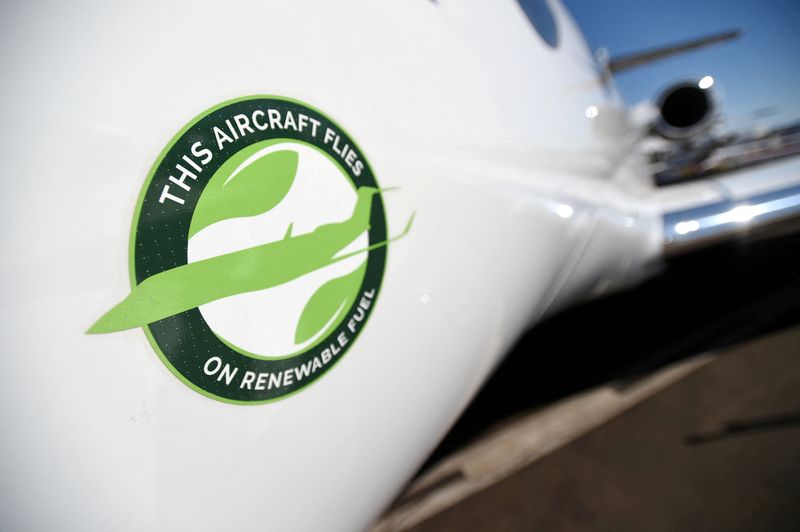Latin American countries switching to eco-friendly fuel
2022.12.17 14:10
[ad_1]

Latin American countries switching to eco-friendly fuel
Budrigannews.com – As emission-conscious airlines search for less-polluting fuel to power flights, industry executives claim that Latin America is attracting early investment for jet fuel produced from materials like palm oil and forest residues.
The majority of sustainable aviation fuel, also known as SAF, is manufactured in the United States, Europe, and Singapore, but Latin America is beginning to emerge as a promising market. That demand is driving early investments and reviving the palm oil debate, which has been the subject of boycotts in Southeast Asia due to environmental and labor issues.
The push comes at a time when industry is under additional pressure to reduce pollution. The aviation agency of the United Nations has set a goal of net zero emissions by 2050, and negotiators are rushing to reach a deal on Monday at a summit in Montreal to protect nature.
Honeywell (NASDAQ:) currently does not produce SAF in Latin America. An executive told Reuters that the company’s Performance Materials and Technologies (PMT) unit is talking to businesses about 12 proposed SAF projects in the region that could be worth billions of dollars, up from three projects in 2018.
Jose Fernandes, the region president for Honeywell PMT, which assists businesses in converting vegetable oil and fats into SAF, stated, “We have two that we are going to announce… in 2023.” Honeywell is currently very active in Latin America.
The American company is working on a $800 million to $1 billion plant in Paraguay featuring SAF with Brazilian biodiesel producer ECB Group. The plant is expected to be operational in 2025.
SAF, which can be made from conventional fuel and cut emissions by up to 80%, is used in a 50/50 ratio with kerosene and is still hard to come by. According to the airline industry group IATA, it should reach 300 million liters in 2022, but this is still less than one percent of the total fuel used by airlines.
The industry anticipates that SAF will account for 10% of the total by 2030. The 2050 net zero emissions goal requires that SAF account for 65% of the total, which would require 450 billion liters annually.
Because of this, there has been a rush to increase SAF production for aviation, which is responsible for 2% to 3% of global emissions. With supply presently restricted basically to U.S. also, European center points, a few voyagers are making mass buys, while carriers look for new SAF sources in the creating scene where traffic is developing more rapidly than mature business sectors.
The International Civil Aviation Organization (ICAO) secretary general, Juan Carlos Salazar, stated, “For SAF to be successful, it needs to be available worldwide.”
The majority of airlines will also limit their rising emissions from international flights as part of the CORSIA agreement, either by using SAF or purchasing offsets, thereby increasing demand for the fuel.
Chile’s LATAM Carriers (OTC:), First, it says it prefers fuel from South America in order to fulfill its promise to use 5% SAF in its operations by 2030.
According to Landon Loomis, president of Boeing Latin America (NYSE:), meeting industry targets requires producing and distributing SAF in areas with faster-growing traffic like Latin America.
Brazil, the world’s second-biggest maker of biofuels, has a sizable amount of feedstock, for example, sugar stick, palm oil and metropolitan waste to cover its stream fuel needs yearly, Loomis said.
According to a representative of the country’s aviation regulator, Brazil also has the technology to produce SAF, which is more difficult to produce than biofuels for automobiles. On the other hand, there is a lack of investment and government policy, which is still being reviewed.
Marcela Braga Anselmi, a department chief at Brazil’s National Civil Aviation Agency (ANAC), stated, “Even if we are not moving as a government, there is movement and interest of the private sector, that is already creating demand.”
The Commodity Import Bank of the US is keen on “endorsing and shutting bankable tasks that source sustainable feedstocks” for SAF and sustainable diesel, especially in districts like Africa and Latin America, a representative said.
New initiatives are emerging. Starting in 2028, the state-owned oil company Petrobras of Brazil intends to produce renewable diesel and SAF, and Raizen, a producer of ethanol, will produce SAF for Embraer, a planemaker. Additionally, in 2025, Vibra Energia and Brasil BioFuels (BBF) will produce palm oil-based jet fuel.
According to the local industry group Fedepalma, Colombia is the largest palm producer in the Americas. Several businesses there are also considering using the crop to make jet fuel.
According to Fedepalma President Nicolas Perez, however, cases of child labor and deforestation in palm oil market nations in southeast Asia have made it difficult to gain global support for the fuel.
According to spokesperson Carolina Betancourt, in light of this perception, Colombian biofuels manufacturer BioD has decided to produce SAF from waste rather than palm oil, which it uses for domestic consumption. To open a SAF refinery by 2027, it hopes to raise $700 million to $1 billion in investment.
Daabon, a palm oil producer in Colombia, is also in talks for a $1 billion project to use green hydrogen to produce 500,000 tons of SAF annually from palm oil. The fuel would should be qualified for carrier use under ICAO’s CORSIA bargain, said project advisor Pedro Ruano.
More Oil rally ended after continuous growth
Colombia, upheld by the World Bank, is likewise embraced a review to show its palm oil isn’t connected to deforestation and a reasonable choice for SAF, said Fedepalma’s Perez.
“We believe that the production of SAF in Colombia would mean an opportunity to contribute to the energy transition and cleaner aviation, which has also generated a new development axis for Colombia,” the company stated.








